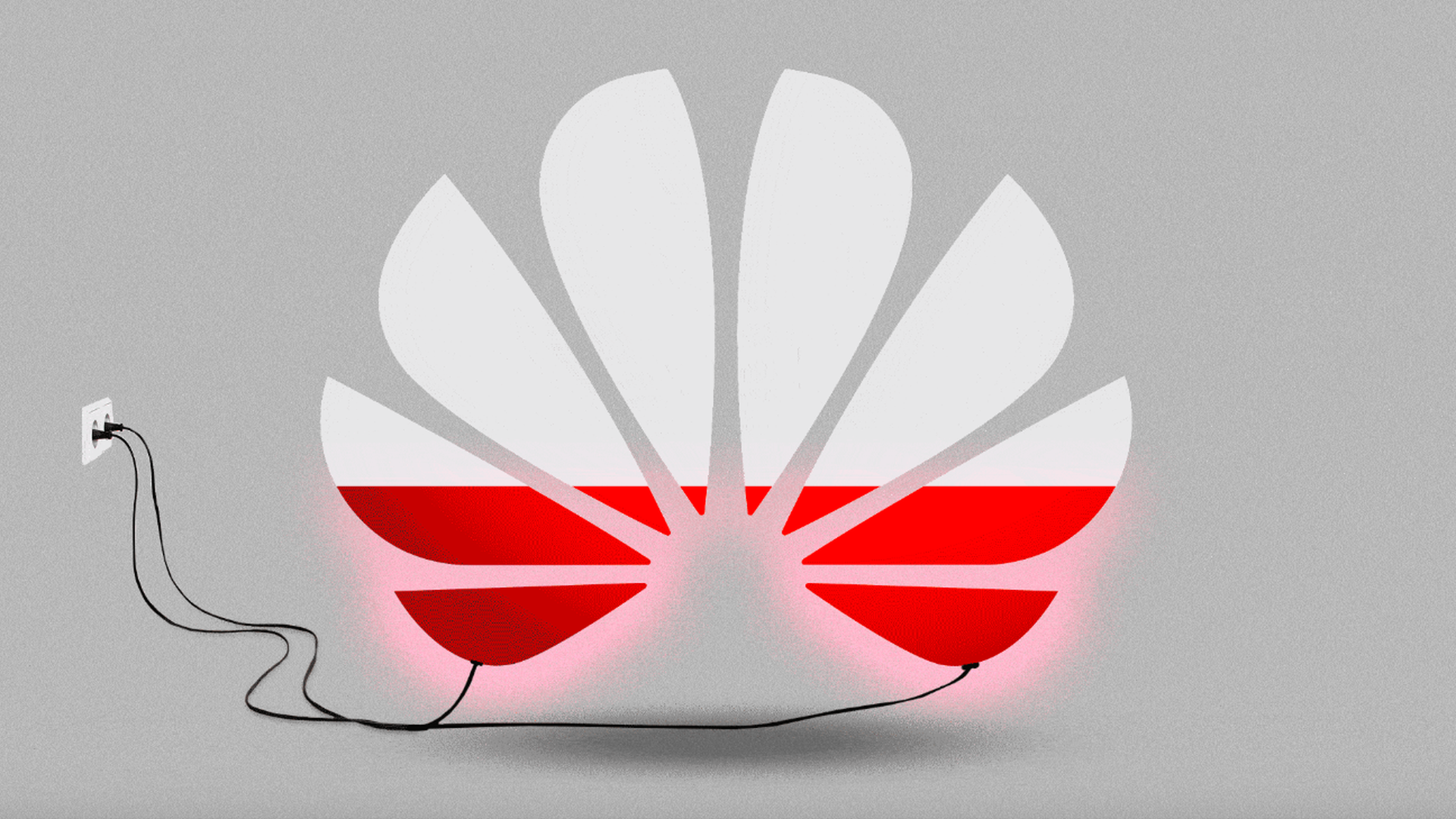U.S. bans could make Huawei stronger
Add Axios as your preferred source to
see more of our stories on Google.

Illustration: Aïda Amer/Axios
The U.S.'s blunt policy of walling itself off from Huawei could backfire, making the Chinese telecom giant even stronger in the long term.
Why it matters: The grand decoupling of American and Chinese tech amid trade tensions and cybersecurity concerns, of which Huawei is at the center, is pushing China's companies to become increasingly self-reliant. Huawei's progress could position it to take the lead in the global U.S.-China tech race, experts say.
- "We could end up ceding ground to global Chinese companies if the United States increasingly fences off access to its tech sector, isolating itself from where innovation is happening around the world," says Samm Sacks, an expert on China and cybersecurity at New America.
Driving the news: The Commerce Department barred American firms from selling to Huawei computer chips that are crucial to building base stations for its new 5G wireless networks — but the Chinese company is learning to live with the ban, Tim Danks, a U.S.-based Huawei executive, told Yahoo Finance.
- Per Danks, Huawei sold 50,000 base stations that contain no U.S.-made technology in the fourth quarter of 2019.
- Huawei still wants to go back to using U.S. tech, Danks told Yahoo Finance.
- And, in the short term, the ban is hurting the American companies who supply Huawei with chips, too. "While it's impacted Huawei and nobody can say it hasn't impacted us to some degree … it's hurting Americans at this point more than it's hurting Huawei," Danks told Axios' Ina Fried at the RSA conference last month.
Yes, but: China had already begun a move toward tech independence long before the U.S. ban on Huawei, building expertise in chips and software to become less reliant on the West, and the U.S. in particular.
The big picture: As Huawei keeps building out networks, even without U.S. chips, it's making headway all over the globe — and bringing Beijing's vision for the internet with it. "We can blacklist companies in this country and wall them off, but they’re going to continue to gain ground in markets across Europe and Asia," Sacks says.
- The U.K. has agreed to let Huawei build part of its 5G network, despite the U.S. urging against it. Switzerland has also welcomed the Chinese giant.
- Those are just two of a slew of countries in Africa, Asia, Europe, South America and beyond that have partnered with Huawei.
What to watch: American companies are making strides in 5G, but have yet to provide the world with a compelling alternative to Huawei, says Sacks. Its chief competitors in the 5G market are Ericsson and Nokia.
Still, China has not secured a definitive lead, Jim Lewis, a fellow at the Center for Strategic and International Studies, said at a Senate hearing on Wednesday.
- "The U.S. is well-positioned to take advantage of 5G technology, just as it did with 4G," Lewis said. "The difference this time is we have real competition, a competitor who is well-resourced, with a strong technology workforce, and a long record of unscrupulous behavior."
- But to beat out Huawei, America must do more than cut the company off from U.S. technology and urge allies to reject it, Sacks says. "If we take this purely defensive posture, I don’t see how we advance."
